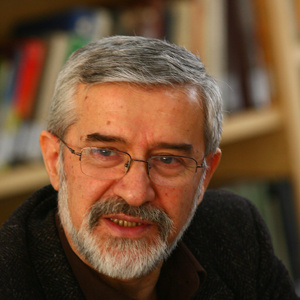Causes of the Rise and Strengthening of JDP

Explaining indexes of the developments in Turkey, he continued: "A month ago, Turkey had a different atmosphere, as our internal circumstances are also affected by the issue of the Middle East and Eastern Asia and Africa.
The former Director General of the West Asia Department of the Ministry of Foreign Affairs added: "when we look at the Turkish political arena, what active and alive trends can be seen? We should not seek to include the trends in clichés, as Iranian liberalism is not the same as a freedom movement. Then what model does the Turkish Islamic party follow?”
Referring to the features of nationalism in Turkey, he added: "In Turkey, we face a strong flow of nationalism based on historical records. During the Ataturk era, he generated a huge wave to shut the Turks’ eyes to the past, but that past was never forgotten.
The second flow in Turkey was pro-Western with own peculiarities different from that of Iran. Pro-Western attitudes in Turkey were different from and stricter than the Iranian Westernization. Ataturk’s Islamophobia was stronger than that of Iran, manifested in changing the writing system, etc. The current pro-Western flow tries to hold its own values.
Terming the third flow as Pan-Turkism, he further stated: “Pan-Turkism was concentrated on Turkey’s language, ethnicity, and historical background, and was based on the belief that all Turks are from the same root and should be united. From an ambitious viewpoint, the flow sought to establish an empire. The intellectual system with the origin of Pan-Turkism has its particular literature, media and social institutions.
The fourth flow is Islamic, having diverse subcategories within its domain. After the massive attack of Ataturk against it, the flow suffered many strong pressures and constraints and hardship and became severely weakened, but it continued to exist in the 50’s, in the 70’s and 90’s; it experienced a fall and rise, and finally at the end of the 20th century, was introduced as a new flow. The flow is fully institutionalized and continues to exit outside of Turkey, in countries such as Germany.
Mousavi emphasized: “I do not think anyone—except for some who might insane—can be found who desires to resurrect the Ottoman Empire. In Iran, we have some people dreaming of Iran’s ancient empire. However, this issue does not negate the Turks’ desire to expand its borders, but the reality of today’s world does not allow such empires to rise. Some of these trends were created by feelings of humiliation, examples of which are found in Iran.
Iran’s former ambassador to Pakistan and India pointed to the rise of the Justice and Development Party in Turkey: “In the first place, we should find out how this party came into existence, because in the 70’s and 90’s there is not such a party. Various parties with different titles are established and dissolved, facing formidable anti-Islamic waves. But Erdogan fulfilled his duties successfully as a mayor, and the successful performance affected his rise. The second cause of Erdogan’s success was the purity of his unquestionable collective. The third cause was the weakness of other persons such as Demirel; unsuccessful in social and economic fields. In that era, mismanagement, corruption and military involvement did severe harm to the community and caused an increase in inflation and effected the people’s sharp economic decline.
About the period after the rise of the Justice and Development Party, Mirmahmoud Mousavi argues: “When the party came to power, it declared that it respected Turkey’s secularism and there should be no worries about that matter. The party did not put any limitation on the army immediately; gradually starting to put restrictions and reducing its intervention and finding its own way. The government has succeeded in achieving significant income growth since November 2002, and has reduced double-digit inflation to seven percent based on the last figure announced. Export, revenues, employment and other indicators have risen sharply. Turkey, in comparison with its past and other European countries, has been the most successful European country.
Finally, he stipulated: “In the social and cultural and religious fields, despite the Muslims’ domination, there is freedom. All policies of the AKP led to an increase in their popularity from 41 percent to 49.6 percent in the last two months. However, the figure is calculated today, and we should wait to judge that popularity until Election Day in June.

